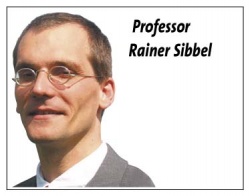Market-oriented performance measurement
The impact of deregulation and internationalisation
on the structures of healthcare systems have made market-oriented performance management and controlling a central challenge for today's hospital managers. Professor Rainer Sibbel, Chairman of the Institute of International Health Management and Director of its MBA - International Hospital Management Programme for healthcare professionals, at the HfB Business school of Finance and Management,Frankfurt, describes the status quo, advises on a transfer of traditional accounting methods and approaches, and adaptation to alternative approaches
by Rainer Sibbel

The main emphasis in hospitals is on cost-accounting and controlling, which are traditionally attached to profit quantities that are easy to collect and to measure. The internal, cost-dominated perspective leads to a mainly operational analysis, relating only to profit and cost figures. Market-oriented performance measurement and controlling concentrates on the long view and on the hard as well as soft profit-factors. The aim is a market-related positioning and navigation of the hospital, to avoid market and cost problems and to secure success on the long run.
Therefore, the following essential range of duties can be derived: The changed conditions require a consequent strategic planning and controlling. It helps to secure the success potentials for the future. Furthermore a service delivery programme must be planned actively and systematic revenue management and output controlling should be carried out. Process efficiency should be constantly questioned and improved. In such interactive and individual services, as offered in hospitals, process management and the organisation design are closely associated with capacity utilisation problems. Not to forget that quality and efficiency are decisively influenced by the staff motivation and behaviour and therefore by the incentive structures.
A high number of deficits can be recognised in the status quo. Predominantly, they often only react to changes in market and economic conditions. Mostly, only first symptoms of strategic planning, navigation and control are observable. They focus on documentation, reporting and simple variance comparison. Rough cost-object and cost-centred accounting can be found, besides the domination of full and actual costing. To fulfil the needs of market-oriented performance management and controlling, active strategic planning and navigation is necessary, just as ongoing planning and control of the service programme, market and customer oriented success analysis, process-oriented calculation and structures, intensive examination of the economic profitability as well as according organisational changes such as profit-centre-concepts, attempts of benchmarking and lots more. The basic maxims behind these are improved and long-term profitability.
The Balanced Scorecard (BS) developed by Kaplan and Norton, which was broadly and rapidly accepted in industry, could strongly contribute to market-oriented performance management, by means of an integrative approach. The essential advantage is that it measures financial or output-related success factors, and also, according to the cause-and-effect-relationship, systematically considers resource and process related impacts as drivers and early indicators. So the BS combines the external market-based view and an internal resource-based view. Further on, this concept not only claims to be a complex ratio system, it should be seen as a complete management system that helps to transfer a vision into strategy and concrete actions.
The essential advantages for hospitals are that the basic design of the BS is flexible enough to appropriately consider specific peculiarities in market conditions and hospital service delivery. On the one hand the BS offers the opportunity and impulse to derive and implement a market-oriented strategy and to navigate its implementation. Typically, hospitals’ economic as well as material goals can be combined in the highest level of strategic objectives. From the perspective of customers, many different groups of clients e.g. patients, doctors or other external stakeholders, can be considered and judged separately. Specific requests and conditions for offering such interactive services can be considered completely on the process level. The potential perspective reflects, in particular, the interests of employees, as well as the relevance of infrastructure or even of modern information and communication technologies. The integrative role is attached to the BS in market-oriented performance management based on the feature of translating vision and strategy and linking strategic and operational management level. The BS is connected to various operational systems and instruments, especially in accounting and controlling. It unifies traditional and modern concepts and methods by perspectives and cause-and-effect-relationships and directs them to strategic critical factors of success. So it offers a promising integrative approach to support and implement market-oriented performance management.
However, the main success factor and premise for implementation is a qualification of management and its perception of hospitals as market-driven, competitive and complex service providers in a very important growth market.’
Details - MBA - International Hospital Management Programme: www.hfb.de
07.08.2006





